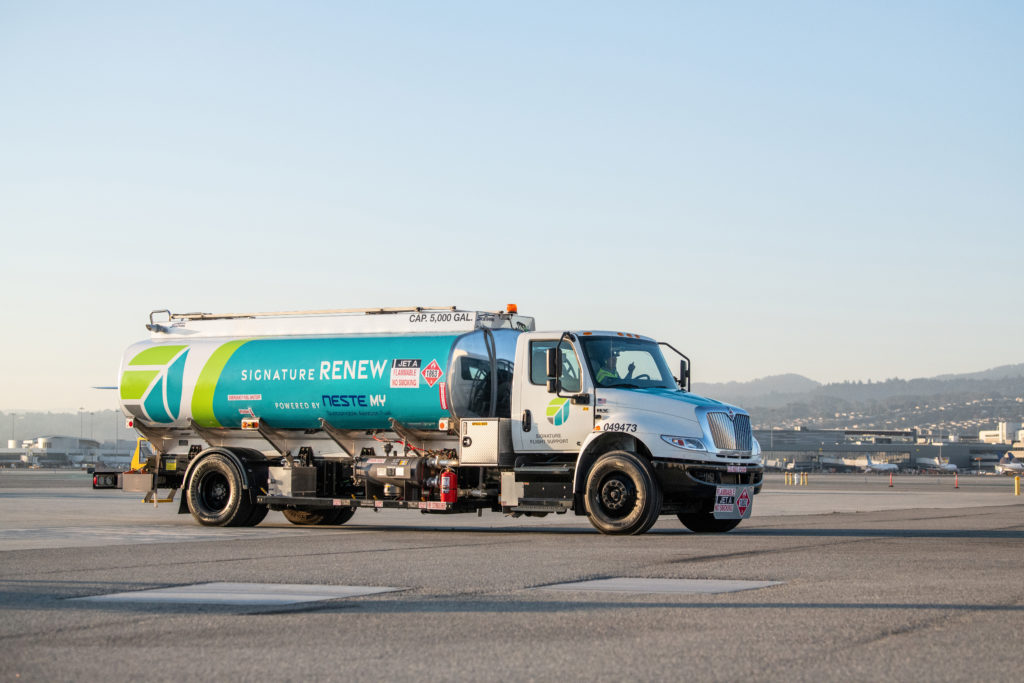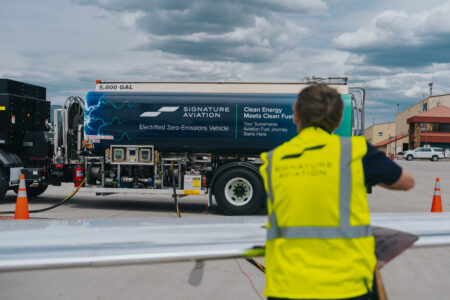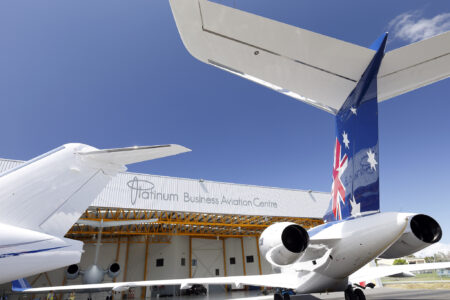Leading business aviation groups and companies have urged the US Government to remove “significant” regulatory issues they say are preventing the commercialization of sustainable aviation fuel.
The consortium of 42 organisations includes the National Air Transportation Association (NATA), the National Business Aviation Association (NBAA) as well Signature Aviation, Atlantic Aviation, Avfuel, Worldfuel and Gulfsteam.
A May 12 letter to the USA’s national climate advisor Gina McCarthy, which was also co-signed by SAF producers and aircraft manufacturers, called for additional participation by the US Environmental Protection Agency (EPA) in the Biden Administration’s SAF Grand Challenge.
Launched last September, the sustainable aviation fuel (SAF) Grand Challenge aims for three billion gallons of domestically produced SAF by the year 2030, up from current US annual production of approximately 4.5 million gallons.
Karen Huggard, NATA’s managing director of legislative affairs and industry relations said, “The aviation industry stands united in calling for sound regulatory and legislative policies that will foster increased production of SAF—a cleaner, more sustainable, drop-in fuel that is crucial to meeting our industry’s goal of net-zero carbon emissions by 2050.
“The broad range of stakeholders who came together on this letter demonstrates the importance of SAF to all sectors of aviation, as well as the necessity of removing regulatory roadblocks that stand in the way of increased production.”
The letter highlighted five simple fixes to an annual rule currently under review by the EPA.
These modifications to the “biointermediate proposal” have broad industry support and would positively impact the scale-up of SAF, says the letter:
- allow SAF feedstock to be processed at more than two facilities,
- allow biointermediate feedstock to be sold to more than one refinery,
- update the definition of biocrude,
- allow for commingling of biointermediates, and
- authorize the use of pipeline biogas for SAF.
“Creating a commercial supply of SAF is of critical importance to both the aviation sector and our nation’s environment. We believe the SAF Grand Challenge can be the foundation for a viable and productive domestic SAF industry, creating tens of thousands of jobs.
“However, it is imperative that the Biden Administration act now to solidify a complementary regulatory framework to foster cleaner, more sustainable, and more secure domestic energy sources for aviation,” the letter stated.





